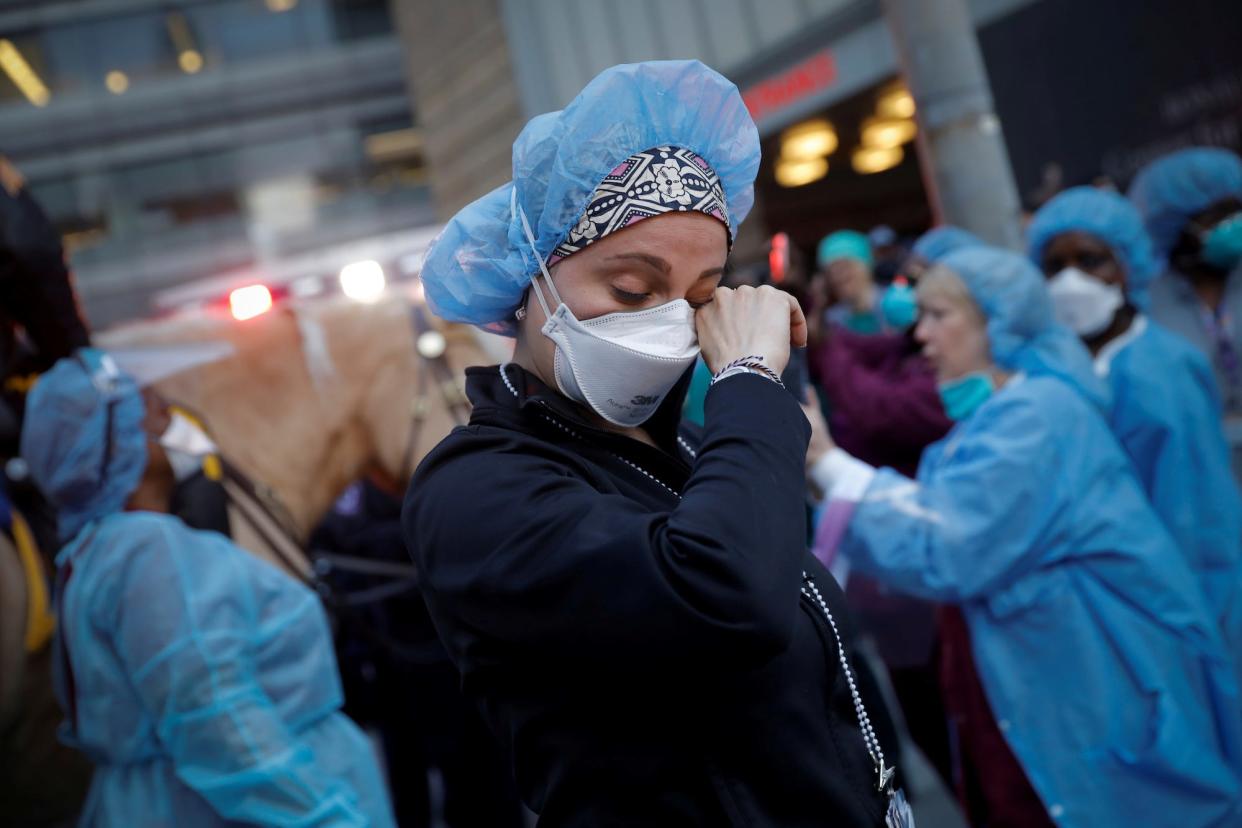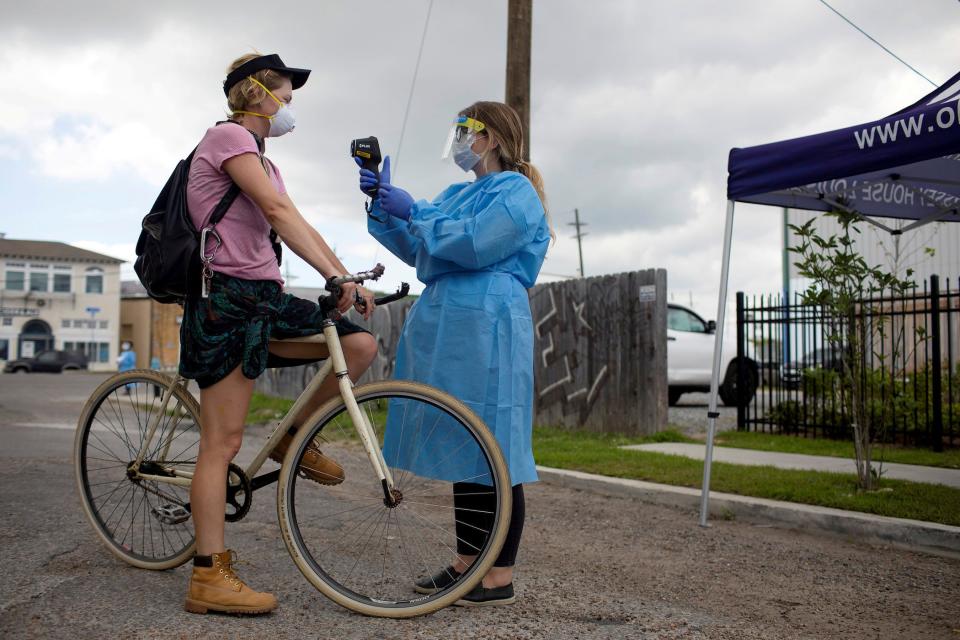Trump and Cuomo are relying on coronavirus testing to reopen the economy. But 3 months into the US outbreak, we have nowhere near enough tests.

REUTERS/Mike Segar
President Donald Trump and New York Gov. Andrew Cuomo have honed in on diagnostic and antibody testing for the novel coronavirus as crucial to reopening the country.
But experts say there aren't nearly enough tests, and ramping up capacity will cost billions.
Mark Levine, a New York City council member, said there are about 10,000 tests conducted in the city each day. "Seems like a lot? We are going to need to ramp up to 10x or 20x this amount for the next phase," he said on Twitter.
Since the first confirmed case of coronavirus showed up in the US in January, the country's leaders — President Donald Trump and big-state governors alike — have shut down schools, businesses, and public gatherings and instructed people to remain home in order to curb the spread of the virus.
These actions, unthinkable mere months ago, have sent the economy into a tailspin. Now that most states are getting a handle on the pandemic, the question has moved from how to stop the spread to how to safely reopen the economy and let Americans get back to work.
Both Trump and New York Gov. Andrew Cuomo, as well as policymakers and public health experts, have honed in on strict testing — diagnostic and antibody — as the key to a phased reopening. Trump has pushed for states to begin reopening on May 1. Cuomo on Thursday instructed the state to remain closed until at least May 15.
'It's like getting Apollo 13 back to Earth'
Rapidly scaling up the number of coronavirus tests needed in a populous, dense place like New York City is a monumental challenge.
"It's like getting Apollo 13 back to Earth," Cuomo said on Wednesday. Mark Levine, a New York City councilmember and chair of the city's health committee, said on Thursday there were approximately 10,000 tests conducted in the city each day.
"Seems like a lot? We are going to need to ramp up to 10x or 20x this amount for the next phase," Levine said on Twitter.
That, Levine says, will cost billions that New York doesn't have, because of the business closures. New York, in other words, needs federal stimulus to make this testing a reality.
Never miss out on healthcare news. Subscribe to Dispensed, Business Insider's weekly newsletter on pharma, biotech, and healthcare.
Despite the challenge, Apollo 13 has to be landed. And doing that will take unprecedented cooperation between the private sector, state and local governments, and federal agencies. On Friday, Cuomo issued an executive order instructing private and public labs to coordinate with the state to ramp up diagnostic testing.

Many of the necessary swabs, reagents, and other supplies needed for testing are produced in China, Cuomo said, and he called on the federal government to intervene and stockpile these so states don't bid up prices.
"We're at a really critical juncture and the supply chain has not yet caught up," Scott Becker, chief executive of the Association of Public Health Laboratories told The New York Times on Wednesday.
Trump, for his part, has said it is up to states to boost their own testing capacity.
"Governor Cuomo should spend more time 'doing' and less time 'complaining'" he said on Friday morning. "Get out there and get the job done. Stop talking! We built you thousands of hospital beds that you didn't need or use, gave large numbers of Ventilators that you should have had, and helped you with....testing that you should be doing."
Trump's three-phase plan to reopen the country
The federal government outlined its own three-phase plan to reopen the country on Thursday evening. That plan, Trump said in a Thursday evening press conference at the White House, is predicated on widespread testing, tracking, and isolating of infected individuals.
"We built the most advanced and robust testing anywhere in the world and we've done more testing than any country anywhere in the world," Trump said, adding that the US has conducted 3.5 million tests.
But most experts say this still falls short of the actual need, given the extremely slim margins that could quickly tip parts of the country back into a pandemic if the reopening is done too fast, or not carefully enough.
Epidemiologists are watching a measure called R0, or R-naught, which represents how many people an average person with the virus infects.
New York could be 'back in an epidemic' if it reopens too quickly
In New York, the shutdowns and social-distancing measures have reduced R0 to 0.9, meaning that, on average, an infected person will transmit the disease to less than one person.
The probability of an epidemic occurring goes way up if R0 exceeds 1. If it hits 1.2 — which is possible if the phased reopening is not done correctly — New York would be "back in an epidemic," Cuomo said on Friday.
Read more: Here's everything we know about remdesivir and 14 other leading coronavirus treatments.
And widespread testing and tracing data is critical to keeping that infection rate low and allowing people to go back to work by figuring out who is infected, who may be immune, and how rapidly the virus is spreading. .
Public health experts told NBC News that testing would have to be doubled or tripled at a national level to even begin a partial reopening of the economy.
"We are an order of magnitude off right now from where we should be," Dylan George, an infectious disease modeling expert told NBC.
Read the original article on Business Insider

